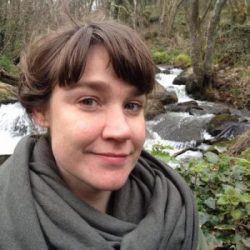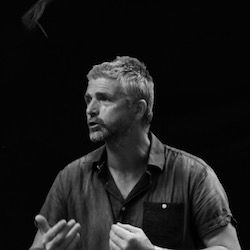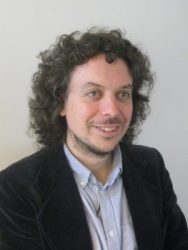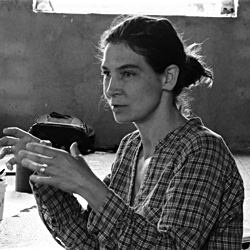A space in which to think critically, to ask challenging and transformative questions, and to search for a deepened inspiration and understanding to empower ourselves as actors for social change
This is a deep inquiry into social change and our place within it. We’ll share experience across struggles and places. We’ll reflect on lessons from social movement history. We’ll explore the lively ecologies that make up movements, how systems work and change. We’ll study different theories of social change and complexity. We’ll share experience. We’ll bring our learning into relationship with systems thinking and theories of complexity. And we’ll ask: How can all of this help make our activism and organising more powerful, more creative, more transformative?
This two week activist summer camp is a space to think critically, to ask challenging and transformative questions, and to search for a deepened inspiration and understanding to empower ourselves as actors for social change. We’ll explore the life cycle of social movements and seek to learn from historical precedents. We’ll survey theories of social change, identifying tensions and complementarities. We will increase our skills in strategising, planning and working for change in the complex ecologies and systems of movements and societies. And we will ask how big picture thinking can inspire and empower our work together.
We will explore:
The inquiry will be structured around a core curriculum, developed and designed by the facilitation team, which will act as a jumping off point for deeper reflection, sharing and learning as a community of inquiry.
Key areas of study and reflection include:
Theories of Social Change
Movement Seasons and Cycles
Movement Ecosystems
Planning and Strategising
Organisational structures and how to work together
All of this will inform deeper inquiry and experiential learning. During a period of campaign building and bench testing we will:
We won’t just explore theories. We will also ask what we do with them – personally and collectively. Do we use them or do they determine us? We can become entrenched in our political views. We can hold models of change unconsciously and they can be hard to examine. History suggests that none of our theories of social change encompass the whole story. And yet we can find our strategies and approaches welded tightly to one fixed position or another. Our approach can become entrenched and unresponsive.
This course will help us to think afresh and to gain perspective. We will explore the formation of political identities – exploring how they serve us and how they hinder us. We will ask: How can we learn to strategise in a way that acknowledges the partial and provisional nature of our views and analysis? How can we develop a strategic approach that is responsive and in which on-going learning remains integral? How can we construct political identities that are genuinely empowering? And how can we develop campaigns, organisations and movements with significant impact for systemic change?
Who is it for?
Activists, campaigners and organisers concerned with systemic change for social justice and ecological integrity. We aim to bring together a range of people from diverse movements and across Europe to share and learn from each other. There will be contributions from participants from diverse movements and settings and we will also draw in presentations and seminar contributions virtually.
Preparation and follow up
The course will be designed to incorporate some preparatory reading and reflection, as well as some participation in a forum with co-participants. Similarly follow up process will help us to continue to share our learning with each other as we carry our learning back into our day to day work.
In the solidarity economy:
(See details of our approach to radical economics here)
Contact us
to apply

Location:
Natasha’s years as a grassroots activist focused on environmental and social justice, and anti-militarism, evolved into a career as a professional campaigner which has spanned the last decade. She is a self described social change geek, obsessed about bringing fresh perspectives to the important question of how best campaigns, especially those focused on transformative systems change, can succeed. To this end she has convened numerous workshops and events exploring the theory and practice of many aspects of campaigning, and has gained a reputation as an activism expert in the UK. Having become frustrated with the limitations of NGO campaigning, Natasha now works as a freelancer, prioritising projects promoting community organising approaches and nurturing European social movements. Natasha also runs the Engaging Activists Facebook group and writes her own blog on activism and social change.

Location:
G has been involved in social movement organising and education since the late 1980’s. He is a highly regarded trainer and has designed numerous training programmes covering areas such as psychosocial resilience in activism, the ecology of social movements, and leaderful organising. As a founding member of the Ulex Project, he is known for highly innovative work blending pedagogical methodologies. This holistic approach to activist learning has inspired numerous training initiatives across Europe. He currently steers the strategic development of the Ulex Project and its social movement capacity building programme.

Location:
Laurence is a Dublin-based writer, teacher and activist, and one of Europe’s best-known social movement researchers. He’s been in many different movements starting with anti-war and anti-apartheid activism in the 1980s, including helping organise the anti-capitalist “movement of movements” in Ireland, media spokesperson for a summit protest, resisting Shell, networking between movements and parties, alternative schools and kindergartens, co-running a Masters for activists, helping organise a Zapatista tour and editing several radical publications, most recently the activist-researcher social movement journal Interface. In his day job as a researcher, he’s written or edited a dozen books as well as lots of free stuff which you can find here. Once he was a street musician but now prefers plumbing wood-fired hot tubs in a field for Buddhist camping retreats.

Location:
María worked for the Red Cross in community development, strengthening civil society, education, and food security in Latin America and Africa. Building on her studies in social psychology and international development, she studied Alternative Economics at Schumacher College, UK. This led her into work on organisational change with NGOs and grassroots movements. María specialises in complexity and participation applied to organisations: organisational structures and culture, emergent strategy, leadership amongst others. She co-founded The Eroles Project, a learning for action project and La Bolina, a systemic project looking at repopulation, inclusion and agroecology. María´s co-authored: Small is Important: Learnings from an integration and regeneration Project. Factores Clave para la Acción Reflexión Colaborativa, Enfoques y herramientas participativas en la cooperación al desarrollo, Activism and spirituality.

Location:
An Maeyens (she/her) is a facilitator and trainer with over two decades of experience in grassroots movements. She specialises in creative, inclusive agenda design and brings deep expertise on group culture, power dynamics, and transformative learning. Starting of in the anti-globalisation movement she has trained thousands in civil disobedience, supported international coalitions, and developed multilingual training programmes and toolkits. Her work spans movements, cultures, and countries, guided by a commitment to care, accessibility, and leaderful organising.

Location:
Ari’s activism began in 2002, at age 16, as a Bosnian refugee in Canada, where they founded and coordinated a group for LGBTIQ high school students and allies. They were a co-founder and leader at kolekTIRV in Croatia and Trans Network Balkan, involved in community organizing, advocacy, program management, team coordination, capacity building, education, media work, campaigns, events, fundraising, etc. In 2024, they joined the Supervisory Board of the Croatian Trade Union Collective of United Precarious Workers and Activists (SKUPA).
Beyond the Balkan region, Ari served as a Board member at Transgender Europe (TGEU), where they held roles as Secretary, Treasurer, and later Co-chair. They have also been a trainer with the Center for Artistic Activism and served on the Advisory Committee and since 2022 as a Community Care Facilitator at FRIDA — The Young Feminist Fund. Since 2024 they are the Operations Manager at Global Philanthropy Project.

Location:
Sergio (all pronouns) was born in Romania and migrated to Germany in the early 2010s. In the past, he was a social worker with homeless people and a social consultant for Eastern European migrants for various organisations. Trained as a filmmaker, he spent two years making a documentary about the ‘civic reawakening’ in Romania and the waves of protest it brought with it. In connection to this, Sergio is currently co-steering the development of an online open-source participative knowledge production platform on activism in Romania. Over the past nine years, Sergiu has offered his skills to various journalists, grassroots collectives and campaigns, mostly working within the labour rights, climate justice, international solidarity and anti-authoritarian movements in Germany and Romania. Nonetheless, his biggest focus since 2020 has been his work as an organiser with the anarcho-syndicalist Free Workers Union, where he focuses mostly on organising Romanian migrant workers on construction sites, in factories and in the agricultural field.

Location:
Linzy Na Nakorn is a movement director, politicised somatics practitioner, community organiser and facilitator. For the past decade she has been facilitating movement, body work and creating theatre, dance and participatory performance that advocates for and organises with communities in pursuit of housing, disability and racial justice. Her movement practice focuses on trauma-informed approaches to building resilience, capacity and joy via way of the body for personal, interpersonal and community sustainability. Linzy was a Co-Director of The Big Ride for Palestine in partnership with The Gaza Sunbirds, Native Woman Ride and Middle East Children’s Alliance; using cycling as a tool for mobilising active solidarity and in support of campaigning for the rights and self-determination of the Palestinian people. Linzy is part of a UK network of activists and artists advocating for Radical Care – supporting organisations, researchers and institutions to work towards system change in societal approaches to labour, leadership and access.

Location:
Jeroen (he/him pronouns) has been involved in grassroots social movements for more than two decades now, starting back when he was fifteen. Throughout the years the fights for “climate justice” and “migrant justice” have been consistently on top of the list of struggles that make his heart beat faster. A key transformative moment for Jeroen was reading Paulo Freire’s Pedagogy of the Oppressed. Freire’s revolutionary pedagogy gave him a language to support the creation of emancipatory learning environments, rooted in a desire for collective liberation. Jeroen has also been exploring in depth Boal’s Theatre of the Oppressed and Joanna Macy’s The Work That Reconnects among other methodologies to build his trainer’s toolkit. Inspired by the liberatory possibilities of these traditions, he started an organization with a friend, LABO vzw, based in Belgium, where he has worked as a trainer and campaigner between 2013 and 2023.

Location:
Ella brings more than 10 years’ external experience working with not for profit and community based organisations across diverse themes including: advocacy for migrant communities; local community engagement in national policy making; and structural relationships between poverty and disenfranchisement, and education and poverty. Immersed in critical theory in her early 20s she brings a holistic and questioning approach, and is passionate about systemic solutions that centre relationship and interconnection between ecology and society. A long standing member of the collective, Ella has been part of the core team since the inception of the Ulex Project. Her work bridges facilitation, developing project partnerships, governance, strategy, operations, and project and programme evaluation. She has developed and overseen more than 70 partnerships with a range of different actors across European social movements.
Ulex: Latin (argelaga Catalan, gorse English) noun:
1. A thorny-evergreen flowering shrub, with a high capacity for regeneration and resilience. Its seedpods open in contact with fire and it reshoots from charred stumps. A successionary plant that grows well under challenging conditions. It improves soil fertility through nitrogen fixing, preparing the way for renewed biodiversity.
2. A traditional choice for igniting fires. Burns hot and bright.
3. A networked project adding nutrition and fertility to European social movements through training and capacity building. It kindles the realisation of social justice, ecological intelligence, and cognitive vitality.